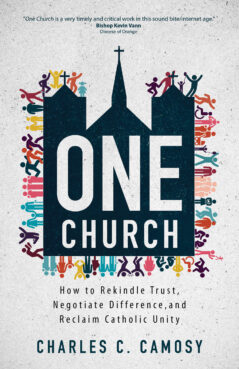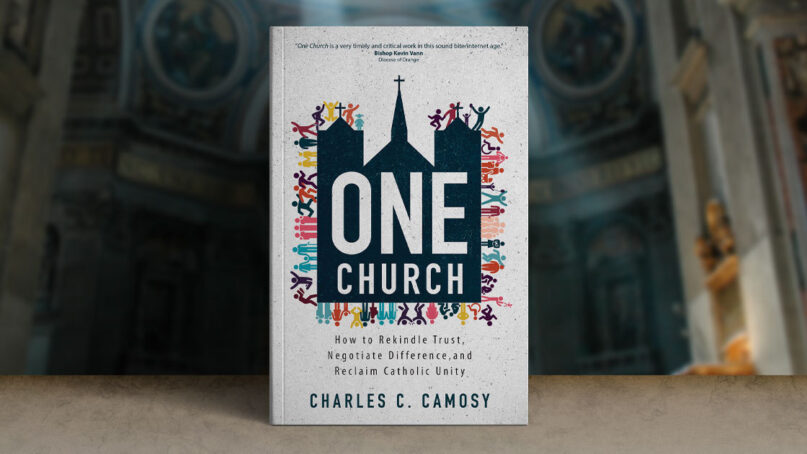(RNS) — Speaking as a dyed-in-the-wool Chicago Cubs fan, one of the most difficult things my faith teaches me is that even St. Louis Cardinals fans are made in the image and likeness of God.
How much harder is it for us to remember the same about those when the issue goes so much deeper. Sometimes we fail to think about the dignity of those with whom we are having a difficult conversation — even when the disagreement is over the dignity of the human person and what it means.
Very often, our failure to see the other fully goes well beyond losing sight of the dignity of our perceived opponent; sometimes their dignity is the very thing explicitly being questioned or attacked. Descriptions of fellow Catholics as “monstrous” or “diabolical” are, unfortunately, a dime a dozen in what passes for Catholic discourse today in the United States.
Though fear and anger can blind us to our own biases and cut us off from a real exchange with someone else, there may be good reasons to be profoundly angry with a fellow Catholic. Our disappointment with another can and should be fully honored, even while we acknowledge that the fundamental reality of the person in front of us is the starting point for any serious exchange.
RELATED: Are the culture wars changing how Christian students choose colleges?
No matter what they think, how they treat us or where their baseball loyalties lie, they are made in the image and likeness of God. And this demands something of us, regardless of how uncomfortable that fact may be.
One thing should give us confidence going into these situations: The church has been dealing with these kinds of challenges for 2,000 years and, with the help of the Holy Spirit, has developed a huge arsenal of spiritual and practical tools. Some are as simple as they are powerful.
When caught in a difficult exchange, I remember the great gift given to me by the Focolare Movement, a global organization promoting understanding, in their exhortation: “Be the first to love.”
This framing immediately plays on my competitive nature — I always want to be first! But it also opens up space for genuine dialogue across difference. Loving first is important because it is what we owe anyone who bears the image and likeness of God. In a very real sense, when we choose to reduce, attack and demean the dignity of the person in front of us, we choose to attack and demean God’s image as well.
That is true regardless of which human being we fail to love. But very often the victim is a fellow baptized Catholic. Again, the contemporary world very often trains us to see fellow Catholics first as allies or foes in relation to secular political goals. Is this a MAGA person, or are they a “social justice warrior”? Is this person an LGBTQ+ ally, or are they “homophobic”?
As disciples of Jesus, we are called to allow the grace of Christ and of his church to shape us into those who are the first to love our perceived opponent. That can happen only when we see them through a very different kind of lens. Before we identify a person in any other way, we must first see them as a family member — a brother or sister in Christ — whom we are called to love before we are called to do anything else.
This, to say the least, is not rewarded in the secular world and especially not on social media, both of which obscure the dignity of those we are taught to dismiss as merely “the other side.” In both political and virtual discourse (and especially in virtual discourse about politics), our perceived opponents are depersonalized such that we are almost never confronted with their humanity.
As Catholics we should know better, but very often we don’t do better. Especially on social media, our first reaction is often to attack, disparage and define by opposition when we ought to demonstrate respect and even reverence for the shared humanity of our perceived opponents.
One way to resist the world’s practices here is to be super intentional about following Christ’s command to genuinely pray for them. It may feel (temporarily) good to “own the libs/cons” — to get the high fives and bro-love from “your side.” But it should go without saying that the very thing that is implied in “owning” someone does not start with their dignity. It almost never arrives at a mutual sense of shared dignity arising from a Gospel-centered love.
Even when we manage to think explicitly about our conversation partners as fellow family members in the church, the challenges do not magically disappear. In some ways they become more complex. The fact that “familiarity breeds contempt” is one reason there are so many challenges in family life.
RELATED: Thou shalt not share false witness

“One Church: How to Rekindle Trust, Negotiate Difference, and Reclaim Catholic Unity” by Charles C. Camosy. Courtesy image
This is certainly the case with our Catholic family. We may feel anger or even rage, making it difficult to imagine how an exchange might go better. Or we may not want to validate someone who holds views we abhor by engaging with them.
But, again, they are dignified in the same way “our side” is, whether we choose to acknowledge it or not. They are dignified in the most profound way possible: They bear the divine image and are temples of the Holy Spirit. This is an essential and fundamental truth of the Catholic faith.
(This column is adapted from “One Church: How to Rekindle Trust, Negotiate Difference, and Reclaim Catholic Unity” by Charles C. Camosy and is reprinted with permission of the publisher, Ave Maria Press.






